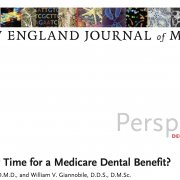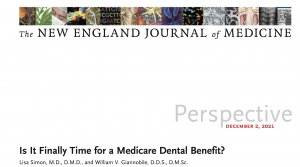7 days in healthcare (April 17th-23rd, 2023)

Summary
From the point of view of Biomedicine, this week, exceptionally, two important advances in Spain are mentioned. On the one hand, the important investigations of the team led by Dr. Obeso, at HM Hospitales, on how to “open” the blood-brain barrier, that barrier that, among other things, prevented the arrival of drugs to the brain. It seems that in this way possibilities could be opened for the treatment of Parkinson’s. On the other hand, at the Vall d’Hebrón Hospital in Barcelona, the first robotic lung transplant was approached through a small incision.
As far as Global Health is concerned, there is a great alarm, highlighted by UNICEF and The Lancet magazine, about the drop in immunizations in children after the covid. Although the covid highlighted the efficacy of the vaccines, it brought the side effect of this drop in immunizations globally. In Uganda, the new anti-homosexuality law takes repression against this sexual option to an extreme, endangering anti-HIV campaigns in that country. The G7, to be held in Japan in May, emphasizes various health issues, including the importance of universal health coverage and the need for resilient health systems.
Regarding International Health Policy, the WHO warns of the non-solution of the covid problem, since in the last 28 days there were 23,000 deaths and 3 million new cases globally, even with reduced test figures. High mortality in the USA, with around 245 deaths per day. In the United States, the government is preparing to finalize the guidelines for negotiating the price of drugs in Medicare in July, something totally new in that country and that is shocking the pharmaceutical industry. The American Supreme Court rectifies its previous decisions and allows the abortion pill mifepristone to continue to be used, amid abundant criticism of the Court, for having questioned something that the FDA had already authorized more than 20 years ago. According to The Economist, the annulment of the Roe v Wade ruling caused the number of abortions in the USA to drop by 6%. In the United Kingdom, the consequences in the NHS of the multiple and continuous strikes and conflicts of health personnel continue. The German government is clashing with other European governments in its efforts to reduce the timeframe for generics to appear, calling into question the pharmaceutical investment model, according to some.
If we talk about National Health Policy (Spain), the incidence of covid continues to rise, amid controversies about the advisability or not of suppressing masks where they are still mandatory (health centers, social health centers and pharmacies). Conflicts with health personnel continue in several autonomous communities. In public healthcare, quite important allocation of resources by the Ministry to primary care and mental health. In private health, in the first quarter of the year there was a growth of 7.5% in the policies of private health insurers. “Voting with your feet” is called that figure. The IDIS Foundation focuses, through an interesting publication, on an important problem: the mental health situation in our country. Since we have few problems, Catalonia insists on an artificial conflict: the use of Catalan in the healthcare system in that autonomous community. Both in Aragon and in Castilla-La Mancha, two initiatives of dubious utility and even suspected of electoralism are launched. In Aragon, a national debate on health is proposed through a very typical document of those that come out in the autonomous communities that could be summarized as “More money for health without reforms.” As for Castilla-La Mancha, a law on waiting lists is promoted, when the terminal state of the legislature suggests that it will not be approved.
In the field of Companies, internationally, Nestlé is accused of manufacturing unhealthy products, due to their high load of fat, sugar and salt. Merck makes a major investment buying Prometheus Biosciences for $11 billion. At the national level, Moderna opens a laboratory in Madrid.
Biomedicine
- Spanish researchers from HM hospitals open a “door” in the blood-brain barrier, which makes it difficult for drugs to reach the brain, to hit the target against Parkinson’s. This opening is achieved by low intensity ultrasound (LIFU) (https://www.diariomedico.com/medicina/neurologia/investigadores-espanoles-abren-una-puerta-en-la-barrera-hematoencefalica-para-dar-en-the-target-against-parkinson’s.html). Original article in Sciences Advances: https://www.science.org/doi/full/10.1126/sciadv.adf4888
- First robotic lung transplant in the world at the Vall d’Hebrón Hospital. It is possible to remove the organ and insert the new one through an 8-centimeter incision in the lower part of the sternum (https://www.elmundo.es/ciencia-y-salud/salud/2023/04/17/643d2259fc6c8331278b459a.html)
Global Health
- UNICEF is alarmed by the decline in child vaccination after covid (https://www.lemonde.fr/sante/article/2023/04/20/vaccination-infantile-l-unicef-s-alarme-de-son-tres-net-recul-dans-le-monde-en-raison-de-la-crise-du-covid-19_6170276_1651302.html)
- The Lancet article: the need to reverse the decline in routine immunizations. The covid showed the potential of vaccination, but, at the same time, it produced a significant drop in childhood vaccination (https://www.thelancet.com/journals/lancet/article/PIIS0140-6736(23)00815-2/fulltext)
- Uganda’s “anti-homosexuality” law is affecting health. Homosexuality was already criminalized in Uganda, but the law passed on March 21, 2023 reinforces the anti-homosexual component by forcing people to report it. Under the new law, up to life imprisonment can be ordered for consensual homosexual sex. Experts say the law may hurt Uganda’s anti-HIV efforts (https://www.thelancet.com/journals/lancet/article/PIIS0140-6736(23)00814-0/fulltext)
- Proposals to the G7 to celebrate May 23 in Japan on the resilience of health systems (https://www.thelancet.com/journals/lancet/article/PIIS0140-6736(23)00690-6/fulltext)
International Health Policy
- COVID
- The WHO warns that the covid is still volatile. In the last 28 days globally there were 23,000 deaths and 3 million new cases, even with reduced tests. High mortality in the United States, with about 245 deaths per day (https://www.who.int/publications/m/item/weekly-epidemiological-update-on-covid-19—20-april-2023 )
- Covid can increase the risk of type 2 diabetes (https://www.nytimes.com/2023/04/18/health/covid-diabetes.html). Original article in JAMA Network Open: https://jamanetwork.com/journals/jamanetworkopen/fullarticle/2803938
- USA
- The American Government will release in July the guide for negotiating the price of drugs for Medicare. In September, the 10 most expensive drugs will be selected for price cuts starting in 2026 (https://www.reuters.com/business/healthcare-pharmaceuticals/july-goal-set-final-us-medicare-drug-negotiation-guidance-2023-04-12/)
- USA authorizes a new round of “boosters” against covid, for people over 65 and people with immune problems (https://www.nytimes.com/2023/04/19/health/covid-boosters-seniors.html)
- The American Supreme Court extends the suspension of the suspension of the abortion pill (https://www.nytimes.com/2023/04/19/us/politics/abortion-pill-supreme-court.html)
- Editorial of Science criticizing the judicial interference in mifespristone, since it questions the role of the FDA, which plays such an important role in the American health system. The agency had already reviewed the drug with all guarantees in the year 2000 (https://www.science.org/doi/10.1126/science.adi2587)
- The Supreme Court allows, for now, the use of the abortion pill mifepristone, which had been approved by the FDA more than twenty years ago (https://www.nytimes.com/2023/04/21/us/politics/supreme-court-abortion-pill-access.html)
- Abortions are 6% less frequent since the end of the Roe w Wade ruling (https://www.economist.com/united-states/2023/04/18/abortions-have-become-6-rarer-since-the-end-of-roe-v-wade)
- Search for explanations of the different impact of the covid in the different American states (https://www.thelancet.com/journals/lancet/article/PIIS0140-6736(23)00726-2/fulltext)
- UK and the NHS
-
- The NHS had to postpone 195,000 appointments due to the latest strikes (https://www.bmj.com/content/381/bmj.p873)
- Sunak seems ready to take on NHS strikes (https://www.theguardian.com/society/2023/apr/16/rishi-sunak-ready-tough-out-further-wave-nhs-strikes)
- Starmer (Labor party leader) says the NHS is broken and in danger under the Conservatives (https://www.theguardian.com/society/2023/apr/18/keir-starmer-says-nhs-is-broken-and-in-jeopardy-under-tories)
-
- Germany
- The German government clashes with other European governments on pharmaceutical regulation. He wants to shorten the deadlines for generics to appear, which questions the current investment model of the pharmaceutical industry (https://www.ft.com/content/55d04217-aa20-48f7-b636-aeaae3e63604?desktop=true&segmentId=7c8f09b9-9b61-4fbb-9430-9208a9e233c8#myft:notification:daily-email:content)
- Pharmaceutical policy
- Patents for 190 drugs will expire before the end of the decade, leaving $236 billion worth of sales up in the air (https://www.economist.com/business/2023/04/20/big-pharma-patent-cliff-is-fast-approaching)
- European Union
- ECDC and WHO alert: There is a high percentage of bacterial resistance in the EU (https://www.consalud.es/pacientes/ecdc-oms-alertan-existe-alto-porcentaje-resistencia-antibioticos-modernos_128917_102.html). Report published jointly by WHO and ECDC on this matter: https://www.who.int/europe/publications/i/item/9789289058537
National health policy
- COVID
- Covid: the accumulated incidence rises 20 points, up to 89.49. 61 deaths in the last week. There are currently 2,331 patients admitted for covid, of which 105 are in ICU beds (https://www.consalud.es/pacientes/infecciones/covid-datos-espana-abril-2023_129091_102.html)
- Controversy about the need to lift the mandatory nature of masks in health centers, social health centers and pharmacies (https://elpais.com/sociedad/2023-04-20/mascarillas-en-farmacias-y-centros-sanitarios-the-time-has-arrived-to-lift-the-last-restriction-of-the-pandemic.html)
- Conflicts in health
- The Madrid health unions call a strike for April 19 (https://www.epe.es/es/sanidad/20230418/sanidad-madrilena-sindicatos-nueva-huelga-86111868)
- The doctors’ strike in Galicia approaches the week with more than 1,000 surgeries suspended (https://www.eldiario.es/galicia/huelga-medicos-galicia-acerca-semana-1-000-cirugias-suspendidas_1_10125929.html )
- Public healthcare
- The Government gives the green light to the distribution of 579 million euros to reform primary care (https://www.plantadoce.com/publico/el-gobierno-da-luz-verde-al-reparto-de-579-millones-of-euros-to-reform-primary-care.html)
- The CISNS approves the Mental Health Improvement Plan with 38.5 million euros (https://www.consalud.es/politica/cisns-apprueba-plan-mejora-infraestructuras-en-salud-mental-con-385-million_128866_102.html)
- Nine communities in the EU clinical history interoperability project (https://diariofarma.com/2023/04/18/9-cc-aa-en-el-proyecto-de-interoperabilidad-de-la-eu-clinical-information)
- Private healthcare
- Health insurance grows 7.5% in the first quarter of 2023 (https://www.redaccionmedica.com/secciones/privada/el-seguro-de-salud-crece-sin-frenos-en-2023-before-a-sns-stressed-5576)
- Health professions
- Public universities will offer 706 extra places in Medicine (https://elpais.com/educacion/2023-04-17/cupo-cerrado-en-medicina-las-universidades-publicas-ofertaran-706-plazas-extra-del-grade.html)
- Publications of the IDIS Foundation
- The IDIS Foundation produces a document analyzing mental health (https://www.fundacionidis.com/informes/otros-informes/aproximacion-a-la-salud-mental-en-espana)
- Catalonia
- The conflict over the use of Catalan and the exclusion of Spanish in public healthcare continues (https://medicinaresponsable.com/actualidad-sanitaria/medicos-catalanes-por-catalan)
- Castilla la Mancha
- Page initiates a bill against waiting lists (https://www.consalud.es/autonomias/castilla-la-mancha/page-inicia-proyecto-ley-limitar-lista-espera-sanitaria-en-castilla-la-mancha_128838_102.html)
- Aragon
- The President of Aragon insists on a State pact, given the imminent collapse of healthcare (https://www.elmundo.es/ciencia-y-salud/salud/2023/04/17/643c12f7fc6c83446e8b4592.html)
- Pharmaceutical policy
- The Spanish Medicines Agency (AEMPS): last Friday, the Agency approved 27 new medicines, of which 18 are generic (https://www.redaccionmedica.com/secciones/industria/los-genericos-copan-el-67-of-new-drugs-approved-by-aemps-8208)
- Regulatory framework
- The Constitutional Court excludes patients with mental disorders from euthanasia (https://www.diariomedico.com/opinion/el-constitucional-excluye-de-la-eutanasia-los-pacientes-con-trastornos-mentales.html )
Companies
- International News
- Nestlé products called into question by a food association. The company accused of excess fat, sugar and salt in its products (https://www.eleconomista.es/retail-consumo/noticias/12238961/04/23/los-productos-de-nestle-puestos-en-entredicho-for-a-food-association-.html)
- Nestlé investors warn of “systemic risk” from unhealthy food (https://www.ft.com/content/0d5c7c7f-821c-4e63-8a55-46f9edbbc4f0)
- Merck buys Prometheus Biosciences for nearly $11 billion (https://www.ft.com/content/c92946ef-a240-4a79-a9a5-0028bd252051)
- GSK bets on a cough medicine with a $2 billion deal with Canadian biotech company Bellus Health (https://www.ft.com/content/9ddcf018-dbdd-4567-b317-63166c95c5be)
- National News
- Sanitas monitors health so that policyholders have healthy habits (https://www.consalud.es/tecnologia/sanitas-monitoriza-salud-digital-habitos-saludables_128742_102.html)
- Moderna invests 22 million euros in its new laboratory in Madrid (https://www.eleconomista.es/salud/noticias/12236644/04/23/moderna-invierte-22-millones-en-su-nuevo-laboratorio-in-spain.html)













